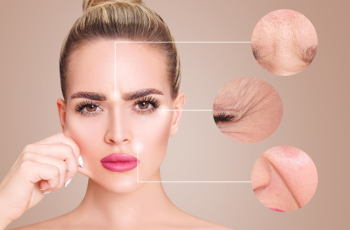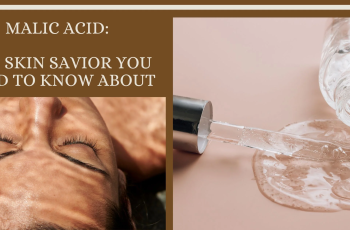
.webp)
.webp)
.webp)
.webp)
Do collagen supplements in the form of powders and pills actually improve the appearance of your skin? Here’s what the experts say. A quick search on Amazon for “drinkable collagen” will return you with over 300 results.
.webp)
.webp)
.webp)
Many of these products not only make convincing sales pitches that claim to improve skin elasticity and firmness, but they also have positive reviews from users who, to their knowledge, confirm that their collagen supplements actually do so.
.webp)
.webp)
.webp)
.webp)
Powders and liquids can seem like an enticing, easy, and sometimes even delicious way to amp up your skincare routine. But can sprinkling seemingly magical collagen powder in your coffee really give you more beautiful skin?
.webp)
.webp)
.webp)
In theory, the idea that drinking a collagen drink can lead to healthier, firmer, and more elastic skin sounds plausible, not to mention worth your hard-earned cash. There’s no doubt about it: collagen has its benefits.
.webp)
.webp)
.webp)
.webp)
But this begs the obvious question: Does drinking collagen or taking oral collagen supplements (such as collagen tablets) actually improve your skin? And if so, what exactly does collagen do for your face? Allure consulted the experts to find out why you should take a collagen shot before you reach for a drink.
.webp)
.webp)
.webp)
What is collagen? And what does it have to do with skin?
.webp)
.webp)
.webp)
.webp)
“Collagen is the most important structural protein in our skin,” says New York dermatologist Dr. Joshua Zeichner. He likens collagen to a mattress frame, because without it, the skin starts to break down — just like a mattress without a frame — leading to fine lines and sagging.
.webp)
.webp)
.webp)
This process is inevitable as we age, as the amount of collagen in our bodies decreases as we age, due to environmental factors like sun exposure and pollution. New York dermatologist Yoon-Soo Cindy Bae, MD, explains that collagen is not only found in our skin, but throughout our bodies.
.webp)
.webp)
.webp)
.webp)
However, she explains that there are different types in the skin itself, such as I, III, IV, and VII. “These types are essential for the structure and function of the skin,” she says. For example, types I, II, and III collagen make up 80 to 90 percent of the collagen in the human body.
.webp)
.webp)
.webp)
It’s logical, then, that they’re essential for the health of our largest organ, our skin. Type I is the most common type and one of the main components of our connective tissue, while Type II is found primarily in cartilage and the eyes, and Type III is found in the skin, muscles, and blood vessels.
.webp)
.webp)
.webp)
.webp)
How is collagen absorbed?
.webp)
.webp)
.webp)
Oral collagen supplements, such as those you can add to coffee or another beverage of your choice, have only been on the market for a few years. Wellness brands and influencers are touting these powders as the new panacea for skin, hair, and joint health.
.webp)
.webp)
.webp)
.webp)
There are two main types on the market today: marine collagen, which is usually sourced from fish, and animal collagen, such as from cows and pigs. These animals have collagen in their bones and tissues.
.webp)
.webp)
.webp)
Collagen is the most important structural protein in our skin.
.webp)
.webp)
.webp)
.webp)
Most collagen supplements come in powder form, while others are also available as liquid drinks. Pills and gummy bears are also popular. If this all sounds familiar, it’s probably because you’ve seen collagen ads online and on social media.
.webp)
.webp)
.webp)
The beauty supplement market, including oral collagen, utilizes countless influencers to post on Instagram about its alleged benefits.
.webp)
.webp)
.webp)
.webp)
All of this being said, we have to take these comments with a grain of salt. Keep in mind that while these people are sharing their real experiences, it is not the same as statements from well-known experts about the effectiveness of collagen.
.webp)
.webp)
.webp)
Can drinking collagen improve your skin?
.webp)
.webp)
.webp)
.webp)
Experts think it is unlikely—especially without evidence. “Despite the common belief that collagen supplements can strengthen our skin, there is little data to actually support this,” says Dr. Erasmus.
.webp)
.webp)
.webp)
Collagen is a large molecule that breaks down into smaller fragments in the intestines when taken orally. So when we take a powder or supplement, our skin doesn’t see a complete collagen molecule, but rather a protein fragment or individual amino acid.
.webp)
.webp)
.webp)
.webp)
In other words, you don’t get the full benefits of the collagen molecule because it breaks down too quickly in the body.
.webp)
.webp)
.webp)
In addition, Keri Gans, a nutritionist and consultant in New York City, addresses the misconception that collagen can reach the face and improve facial skin immediately by taking collagen. “Collagen doesn’t know where to go in the body,” she says. “That’s not the case.”
.webp)
.webp)
.webp)
.webp)
Gans adds that testimonials on sites like Amazon mean little because people are constantly changing their lifestyle habits (e.g., exercising more, eating better, etc.), which she believes makes it hard to tell whether collagen is actually the factor that improves skin.
.webp)
.webp)
Despite the common belief that collagen supplements can strengthen our skin, there is actually little data to prove this.
The experts we spoke to made it clear that more science is needed about collagen (and its beneficial effects on the skin). However, these “advantages” should be viewed with caution, as they are ultimately just marketing claims.
“We know that hydrolyzed collagen has antioxidant properties and therefore may be beneficial. However, its specific effects on the skin remain unknown,” she says. “Therefore, prospective clinical trials must be conducted to study their effects.”
Are collagen supplements safe?
Yes, collagen supplements are likely safe. However, if you want results, Dr. Zeichner recommends topical treatments (rather than taking collagen) to really see results. However, this doesn’t mean applying collagen topically, although there are many products that contain collagen.
Instead, choose products with ingredients that are proven to improve your own collagen. “Until we have more data, I would still recommend traditional collagen-boosting treatments, such as topical retinol,” he says.
The Bottom Line: While taking collagen is generally safe, it’s impossible to tell if it strengthens and benefits the skin until more thorough clinical studies are done. In the meantime, talk to your dermatologist about whether you should incorporate a retinol product into your skincare routine. Finally, retinol has been shown to help smooth fine lines and reduce blemishes.

